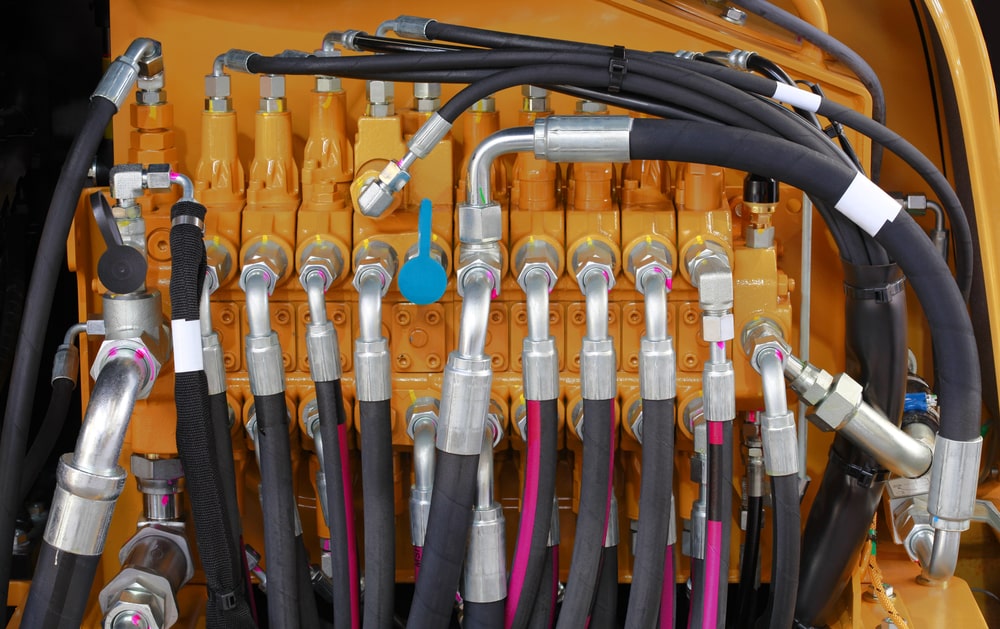Everything You Need to Know About Hydraulic Systems

Hydraulic systems can be found everywhere from the brakes in your car to heavy construction and mining machinery. Hydraulic systems have been used for centuries and are still relied on by numerous industries because they are a simple but powerful way to achieve useful work. They also have the advantage of a compact and flexible design with relatively few moving parts. That means they are often easier to maintain and more economical than other systems.
How do hydraulic systems work?
The basic concept of hydraulic systems relies on Pascal’s Law which states that a pressure applied to one side of a contained fluid will be transmitted through the fluid to the other side of the container. Once you understand that an incompressible fluid can be used to transfer and even multiply a force, you can create complex hydraulic systems to achieve particular results. That includes lifting very heavy loads with a relatively small applied force.
A basic hydraulic system might just have a piston at one end, a pipe with an incompressible fluid, and another piston at the other end. When you push down on the first piston, the force moves through the fluid to the second piston. In most cases, hydraulic systems are a bit more complex, and Hydraulic Repairs can involve fixing issues with things like pipe length, direction, or width to meet specific needs. Sometimes, the piping even forks to send the force to multiple pistons at once.
Essential components of a hydraulic system
Hydraulic systems can be simple or sophisticated, but all hydraulic systems rely on these basic components:
-
Reservoir - this stores the hydraulic fluid.
-
Pump - this takes the hydraulic fluid from the reservoir and forces it into the rest of the system. In other words, the pump turns mechanical energy into hydraulic energy. You can find kubota d722 fuel injection pump or other replacement parts online these days.
-
Power source/Engine - to drive the pump.
-
Valves - there are a wide range of valve types which control pressure, flow and direction of the hydraulic fluid. An ultrasonic flowmeter is one device that does this.
-
Actuator - this converts the hydraulic energy into useful mechanical energy. An actuator can be a hydraulic cylinder (straight line force) or a rotary (twisting force).
-
Piping - to convey the fluid throughout the system.
-
Fluid - hydraulic fluids can be petroleum-based, water-based or synthetic, depending on the specific application. Most crucially, hydraulic fluids must be incompressible.
Where are hydraulic systems used?
Thanks to their diversity and flexibility, hydraulic systems are found everywhere in modern life across countless industries. Examples of common applications include:
-
Construction equipment - Forklifts, cranes and diggers all rely on hydraulic systems to function. By applying a small force, the hydraulic systems allow for some very heavy lifting.
-
Agricultural equipment - Machines such as crop harvesters, loaders and tractors all rely on hydraulic systems.
-
Mining machinery - Hydraulic systems can be found in numerous onshore and offshore mining machinery including Vacuum Trucks, drills and conveyors.
-
Aviation equipment - The braking system, flaps and landing equipment on an airplane all use hydraulics to function.
-
Marine industry - Steering, rudder control, lifting equipment and hoisted ramps are just some of the equipment in the marine industry that rely on hydraulic systems.




